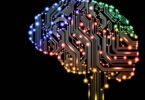Artificial Intelligence in medicine has transcended for the well-being of people.
Artificial intelligence (AI) is made up of a series of sufficiently trained logical algorithms from which machines are capable of making decisions for specific cases based on general rules.
Currently, the most common functions of AI applied to medicine are clinical decision making that helps providers make decisions about treatments, drugs and other patient needs, as well as offering rapid access to information without errors.
Artificial intelligence applied to medicine affects the following aspects:
- AI makes it possible to analyze the relationships between prevention or treatment techniques and their results in the patient.
- Machine learning models could be used to observe the vital signs of patients receiving intensive care and alert doctors if certain risk factors increase.
- Artificial Intelligence has the strength to provide personalized medical care to patients 24 hours a day through a virtual assistant, to answer questions.
- AI may be as effective as human radiologists in detecting signs of breast cancer and other conditions.
- AI can help assign medical codes to patients and speed up the process by providing a faster and smarter search.
- AI could also be very efficient in reducing the costs of developing new drugs.
- AI can help improve patient safety, error detection and drug management.
- The AI by means of algorithms can use the context to distinguish between different types of information.
- AI helps doctors solve complex situations in a minimum amount of time.
- AI can help minimize research times for the development of new medicines for diseases.
- AI could replace health professionals in some tasks, such as diagnosis, prognosis and some surgeries.
https://mexico.unir.net/salud/noticias/inteligencia-artificial-medicina/









